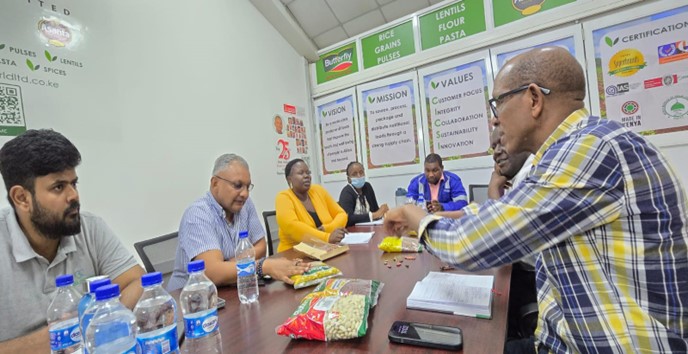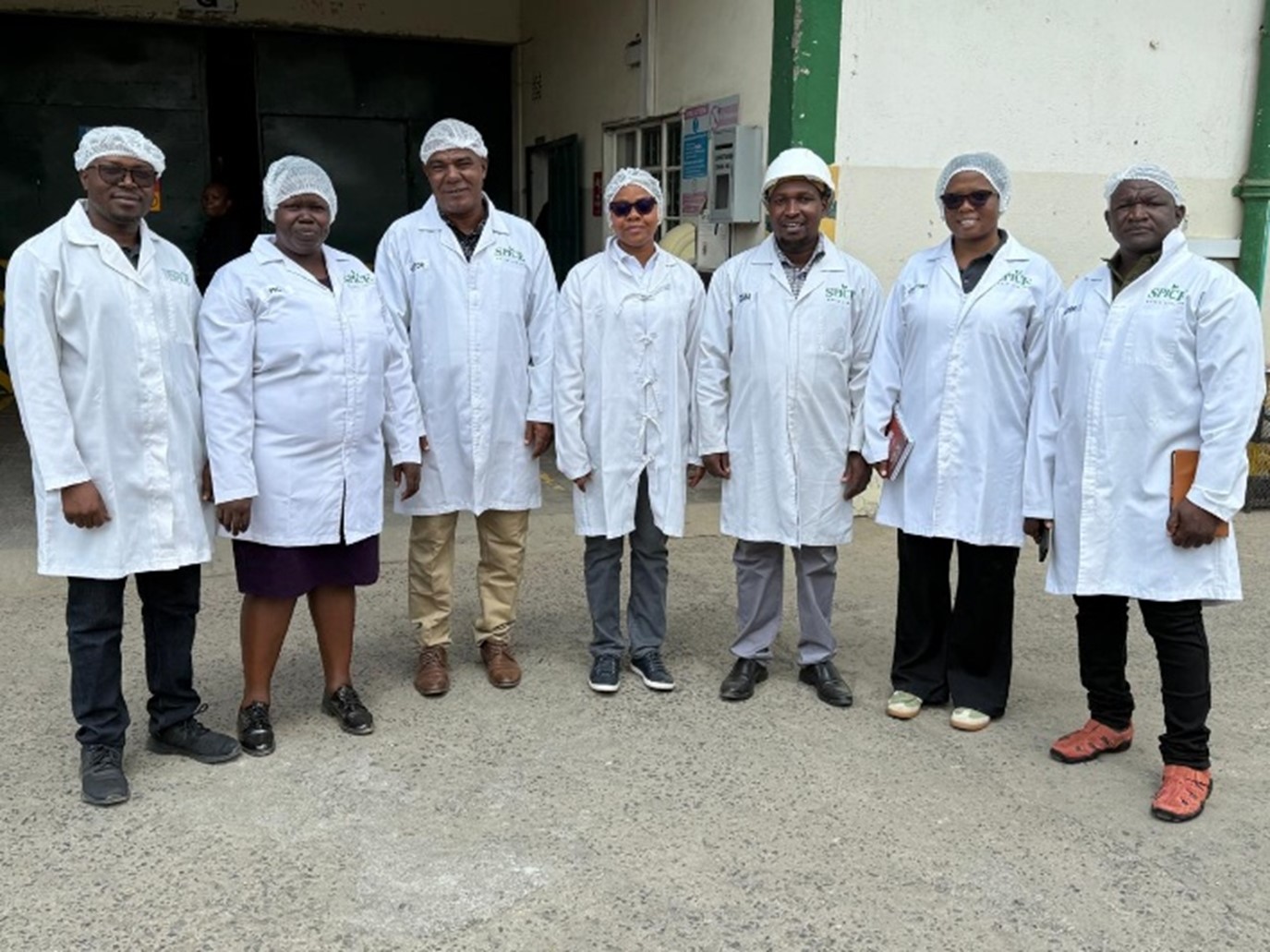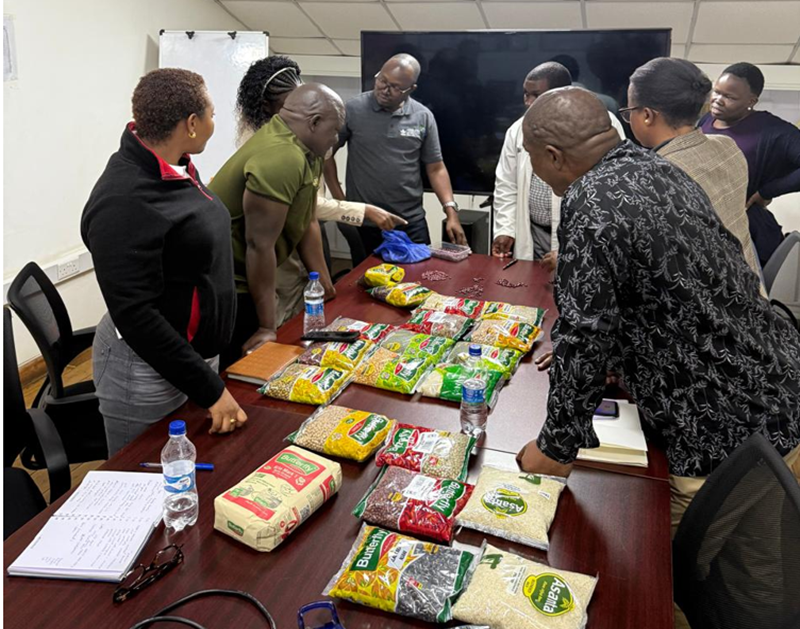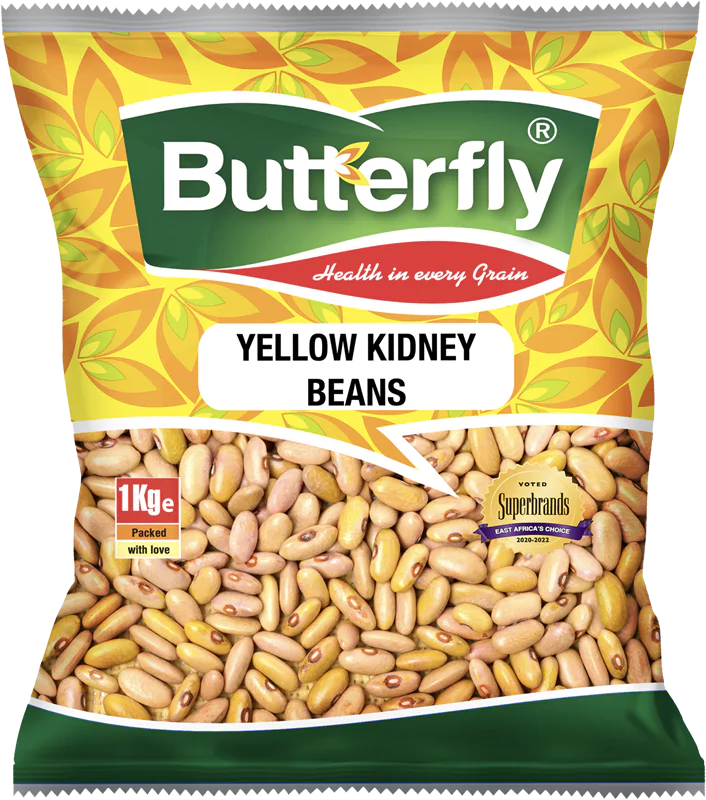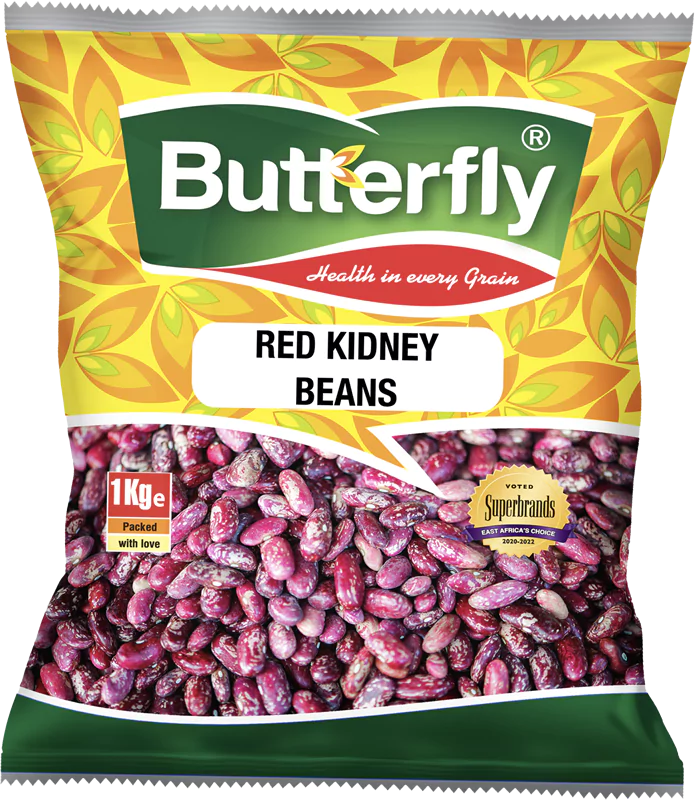By Dennis Ong’or, Warren Arinaitwe, Sylvia Kalemera, Radegunda Kessy, Justus Ochieng, Eliud Birachi, Agness Manthi, Jean Claude Rubyogo
The story of beans in Africa is evolving and is no longer confined to subsistence farms or local markets. Beans are now drawing the attention of major food industry players seeking to deliver nutrition, variety, and innovation to increasingly demanding consumers. One of the latest and most promising partnerships in this transformation is the growing collaboration between the Pan-Africa Bean Research Alliance (PABRA) of the Alliance of Bioversity International and CIAT, and Spice World Limited.
A company hungry for distinction
Spice World, a rapidly growing food processor based in Kenya, is no stranger to the pulse sector. However, despite sourcing from promising regions, the company has reported post-sorting losses of up to 30%. To stay competitive, the agribusiness has been seeking more than volume. Their goal has been to add exclusive varieties to their offering. That search led them to PABRA, known for its role in facilitating the breeding, promotion, and access of farmer-centred, market-preferred, and planet-friendly bean varieties across 31 countries. The varieties that drew the most attention were Rwanda’s MBC 23, Mwirasi, NUA 566; Uganda’s NABE 15; and Tanzania’s Selian 13, Uyole 96, and Selian 94. Spice World believes that adding these varieties to their portfolio would help them secure marketable volumes that consistently meet the quality required for trade. From transaction to transformation: A new odel Emerges.
Recognizing the need for new sourcing models, PABRA and Spice World began exploring alternatives. Central to this shift are approaches such as contract farming, aggregator channels, and out-grower frameworks, designed to address quality concerns, ensure traceability, and provide predictable supply. Leveraging existing PABRA systems, these models are being activated faster and with greater trust, with initial steps underway in Tanzania in sorting and cleaning seeds for the upcoming season. Through its Tanzanian subsidiary, The Good Grain Company Ltd, Spice World is aiming to aggregate 1,500 metric tons (MT) from Tanzania in 2025. To start with, the offtaker has begun aggregating 200MT of Selian 13 yellow bean, 70MT of red mottled (Lyamungo 90) and TARI Bean 7, 100MT of Selian 94, and 500MT of Uyole 96 (red kidney) and Kikatiti (sugar), with two godowns secured in Kisongo, Arusha region. The presence of The Good Grain Company in Tanzania has opened business opportunities for local actors. For example, Bashiru Traders (grain trader) and Crop Biosciences (seed company) from Babati are currently in discussions on how to tap into existing opportunities.
Expanding footprint for Spice World
Spice World’s decision to establish new operations in Tanzania and begin scoping similar activities in Uganda and Rwanda is no coincidence. It reflects growing confidence in PABRA’s institutional presence and influence. In the initial engagements, PABRA facilitated B2B exchanges where business owners from Tanzania visited Spice World in Nairobi (Figure 2 and 3), followed by a reciprocal visit by Spice World representatives to Tanzania. These early interactions laid the groundwork for the current operational rollout.
Why this partnership matters
A subtle but significant transformation is underway in the bean value chain. It is no longer solely about moving commodities from point A to B, but about establishing sustainable, trust-based partnerships that generate value at every stage. Spice World’s case is particularly noteworthy, as it illustrates how private sector players are increasingly willing to invest, not just purchase. It also highlights the need to align variety release with systems for bulking, aggregation, and post-harvest quality assurance to fully capture the potential benefits. For PABRA, this marks a strong validation of its long-term corridor model, an approach that integrates research, production, and markets to support smallholder farmers while meeting the evolving demands of the industry.
The road ahead: Sowing trust, reaping value
As the partnership between Spice World and PABRA deepens, there is growing optimism that more bean varieties, such as MBC 23, Mwirasi, NUA 566, the NABE series, Selian 13, Uyole 96, Kikatiti, and Selian 94, will become visible on supermarket shelves across borders, not just in home kitchens within producing countries. If successful, this partnership will demonstrate that quality, quantity, and uniqueness are not trade-offs, but they can be achieved in alignment.
______________________________________________________________________
Cover Image: Initial partnership discussions between Spice World and PABRA at Spice World head offices in Nairobi

